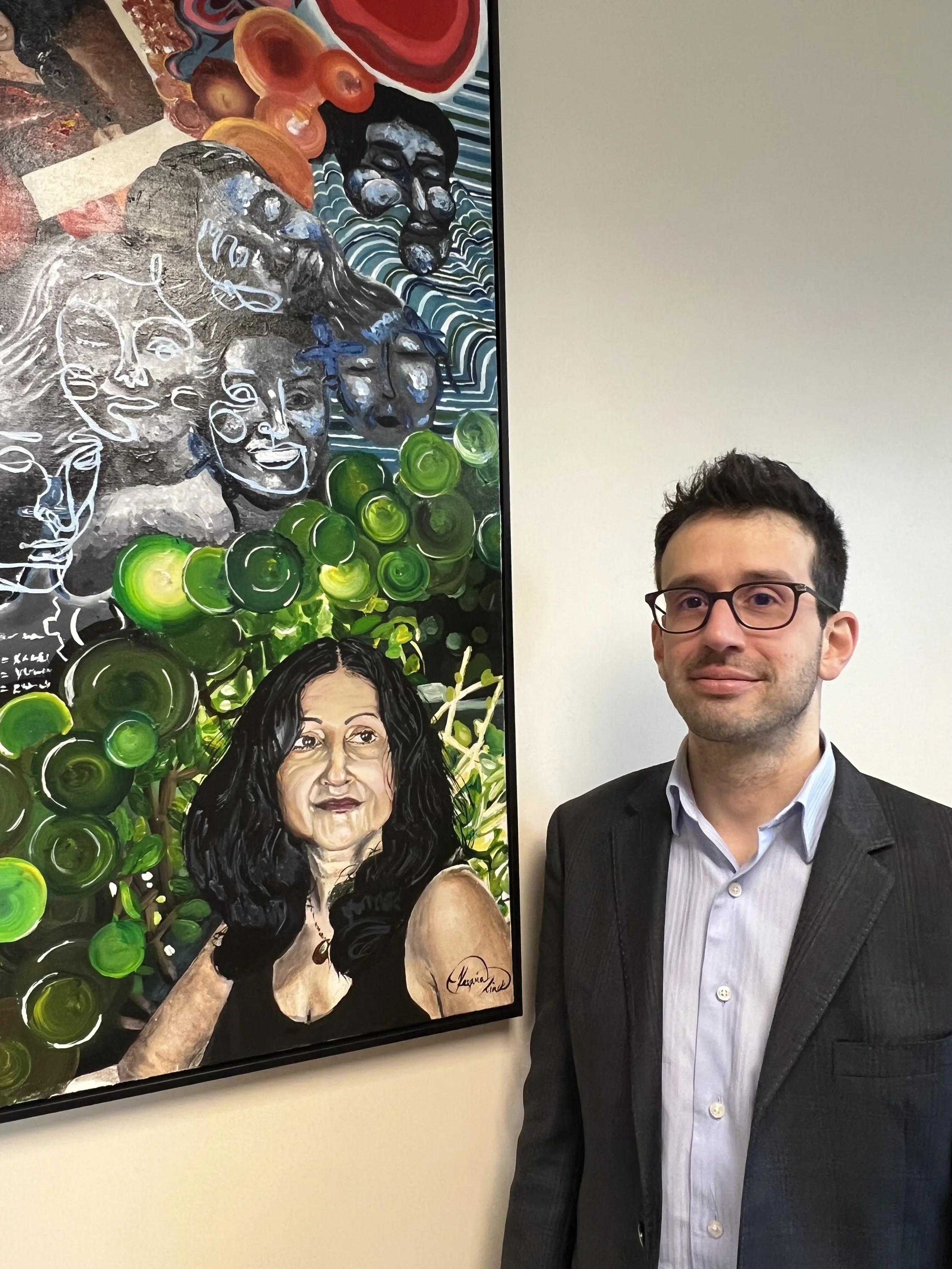AU professor discusses Hispanic Heritage Month
AU Spanish professor Christopher Botero poses next to a painting of critically acclaimed Puerto Rican author Judith Ortiz Cofer in the main suite of the EWL office. (photo courtesy of Keyvia Mack)
By Aaron Smith | Staff writer
Augusta University is honoring National Hispanic Heritage Month from Sept. 15 to Oct. 15, with several on-campus Hispanic organizations and faculty hosting events and sharing the love of their culture.
Annually, Americans take part in National Hispanic Heritage Month by celebrating the histories, cultures and contributions of those whose ancestors came from Spain, Mexico, the Caribbean and Central and South America.
Christopher Botero, associate professor of Spanish in the Department of English and World Languages in the Pamplin College of Arts, Humanities and Social Sciences, who is of Hispanic heritage, feels that Hispanic heritage is well represented in the United States.
Botero said that he tries to incorporate Hispanic heritage not just from his birthplace of Colombia, but also from other Hispanic countries as well.
“While we don’t have any cultural events, I try to have my classes do greetings from different parts of the world,” he said. “The greetings from Spain are different than the greetings from Argentina, therefore I try to incorporate that along with teaching grammar.”
Much like many Hispanic or Latino Americans, National Hispanic Heritage Month has a special meaning to Botero.
“It’s definitely a time to take a moment and be proud of what my heritage is,” he said. “Hispanic Heritage Month is a time in which I’m remind- ed of where I come from and I’m proud of who I am and where I’m from.”
“Currently, the United States has more native Spanish speakers than Spain does,” he said. “And, if you pull the Latinx population from around the U.S., you’ll see that we have the fifth strongest economy, so I believe these indicate just how strong the Hispanic heritage dynamic is in not just in the CSRA, but also the entire country.”
While AU offers several clubs like the Spanish Club, Botero works with Alpha Mu Gamma, the honor society of which he is the faculty advisor. He said that Alpha Mu Gamma often works to- ward learning the historical significance of Hispanic cultures around the world.
“We will often get together and watch movies from other parts of the world, mainly from Latin America and Spain,” Botero said. “Sometimes, things from different cultures aren’t very delightful, but we then have intense discussions about the movies afterwards to empathize with other cultures. It may not be the culture that we talk about or are happy about, but it’s culture nonetheless.”
Contact Aaron Smith at madsmith@augusta.edu.
This story is published in the Monday, Oct. 3, 2022 print edition of The Bell Ringer on page 3.




